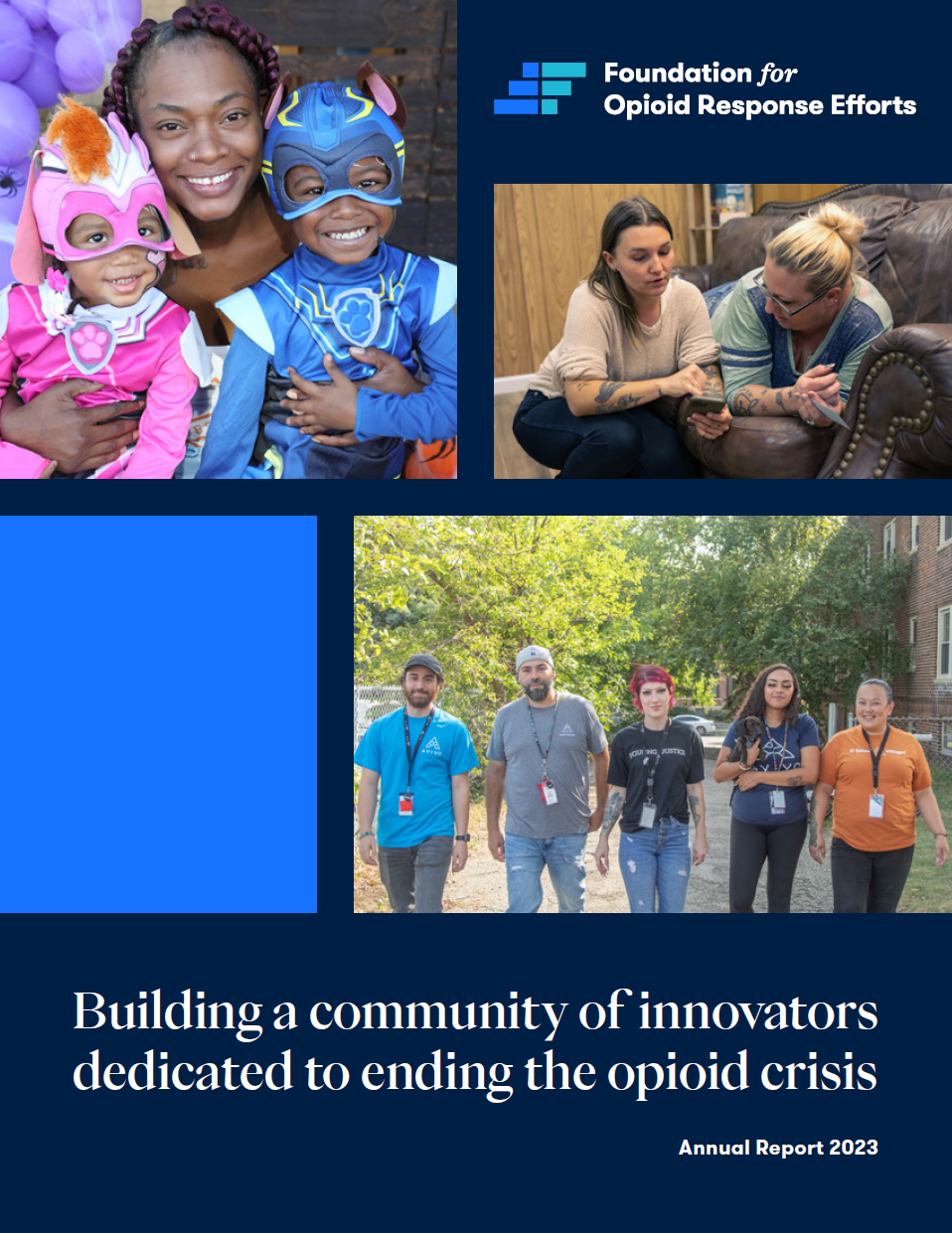News & Updates — FORE Announcements
Annual Report 2023: Celebrating a Year of Progress and an Expanded Reach
April 16, 2024We’re excited to share our third annual report, which chronicles the remarkable progress our grantees have made in addressing the twin crisis of opioid use disorder (OUD) and opioid poisoning.

The report highlights how our grantees have tackled some of the most challenging problems we face, including preventing overdoses among people leaving jails and prisons and helping pregnant people with OUD obtain evidence-based treatment and the supports needed to sustain recovery.
It’s been gratifying to see the uptake of tools they’ve developed to help public health authorities predict and prevent overdoses and the ways their novel training programs and toolkits are expanding the workforce needed to engage people in recovery.
We’re also proud of how grantees in different states are filling a critical gap in the continuum of supports available to youth who may be affected by parental substance use. Their work is generating important lessons for policymakers and new insights on what it takes to prevent substance use.
Harnessing the Power of Community-Based Organizations
The report also introduces the work of grantees in our Community-Driven Responses to Opioid Use Disorder and Overdose Mortality Program, which aims to help small community-based organizations (CBOs) with innovative ideas for preventing OUD and overdose deaths realize their full potential.
We awarded 22 CBOs up to $150,000 each in flexible funding so they have the resources they need to test new ideas, hire staff, and make investments in technology and other essential infrastructure. Read how they are:
- Creating supports and strengthening infrastructure in low-resourced communities
- Connecting people at high risk of overdose to treatment and recovery supports
- Expanding the scope of promising models with new services
- Fostering collaboration between the public and private sectors
We’re excited to welcome them to a growing community of innovators that now also includes community leaders, pharmacists, and educators who are mentoring the next generation and directing how their community’s resources are deployed to achieve substantive change.